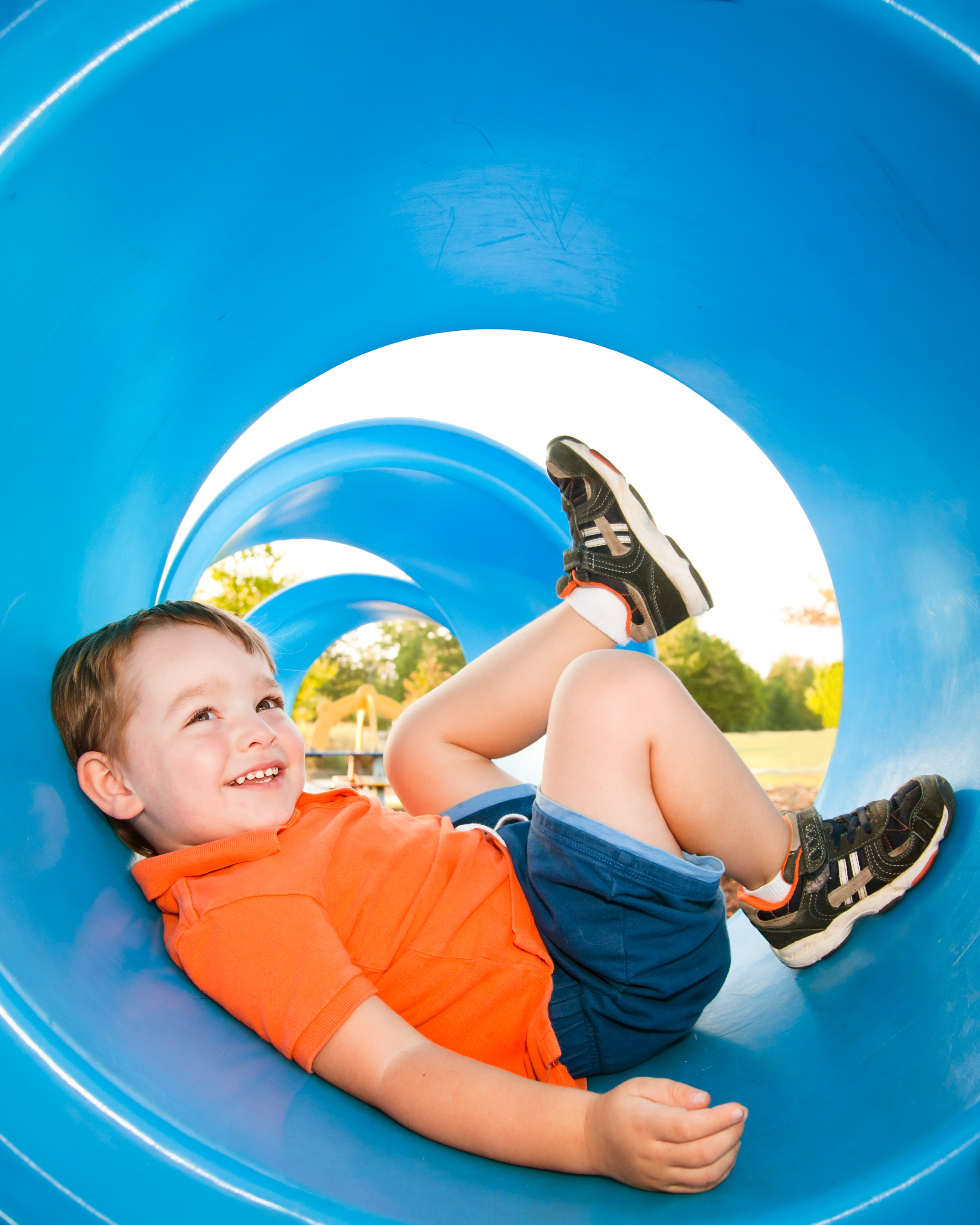
With warmer weather approaching, the park is the place to be for kids and parents who are ready to spend some time outdoors after a long winter. However, the park can be full of hazards for 3- to 5-year olds, and you are going to need to be alert. If you want to enjoy some relaxation while your preschooler burns off some pent up energy, here are some tips to keep your little one safe at the park.
1. Look for Age-Appropriate Equipment
The most important factor to consider is the equipment. Are there age-appropriate play structures for your child? Modern playground equipment is designed for specific age groups. Some setups are for ages 2 though 5, which is ideal for your little one, while others are designed for ages 5 through 12. If the playground is not marked, look for a playground with structures that your child can climb safely without help. If the playground is too tall or challenging for your child to navigate, it's probably not age appropriate.
That said, if you are at a large playground that has a small side for younger children and a large side for older children, be careful. Often these are linked in such a way that the 3-year-old can access the taller side. Make sure your child is playing where it is safe and appropriate for him or her.
2. Deal With Problematic Children Appropriately
If you have spent any time at all at a public playground, then you have come across the unruly child. This is the one who is always pushing his or her way to the front, not paying attention to other, smaller children. Knowing how to best handle these children, and keep your own child safe, is not easy.
Start by asking the child to cooperate. Sometimes these children are behaving in an unsafe manner because they've never been taught otherwise. Say, "Hey, these other kids would like a turn, can they go first please?" and see what happens. If the child does not respond to your gentle reminders, remember that it's not your job to discipline other people's children. Talk to the parents, even if you fear they will be upset, and ask for assistance with the situation. If all else fails, find a new area for your child to play — away from the rambunctious one.
3. Inspect the Equipment
While most cities do their best to keep playground equipment in good repair, the reality is, sometimes it's impossible to keep up with everything. Before you let your child run free on the playground, look for problems, like insufficient ground cushioning, and exposed bolts or rusted equipment. If these problems are significant enough that you can't avoid them, find a new playground. For your preschooler, whose falls are more common due to poorly-developed balance, make sure the ground he or she plays on has a solid layer of cushioning to help your child avoid serious injuries when falls occur.
4. Teach Children to Avoid Animals
Parks, especially in the city, attract more than just moms with kids. They also attract people with pets, and rodents (like squirrels), that want to feed on the scraps left by humans. Preschool children are often drawn naturally to animals, but it's important that they know to avoid approaching animals in the park without your permission. Go beyond asking them to ask the animal owner's permission, but require children to come to you for permission if they wish to approach any animal they see at the playground. It just takes one bite from a squirrel to transmit a deadly disease, and a seemingly calm dog may become far less calm when an excited preschooler approaches without warning.
The preschool years are a time of great exploration and adventure. They are also a time when motor skills are developing, and the playground is a great place to discover some of those new skills. Be sure to teach your child how to do so safely, so you can both enjoy the benefits of the playground without an unexpected trip to the emergency room.



























